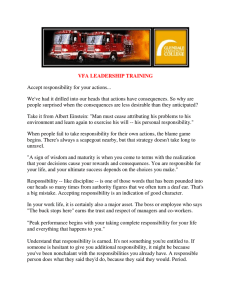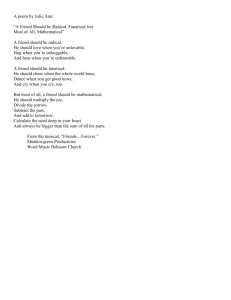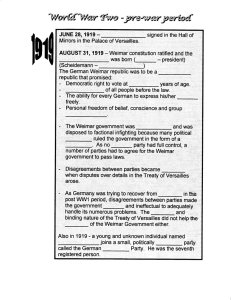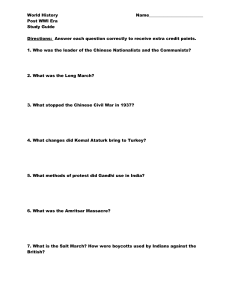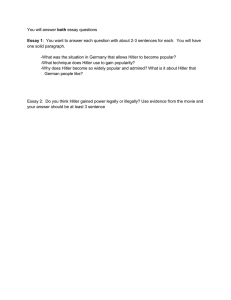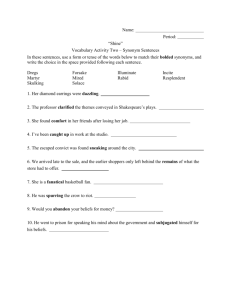“The Power and the Glory” Silent Discussion
advertisement
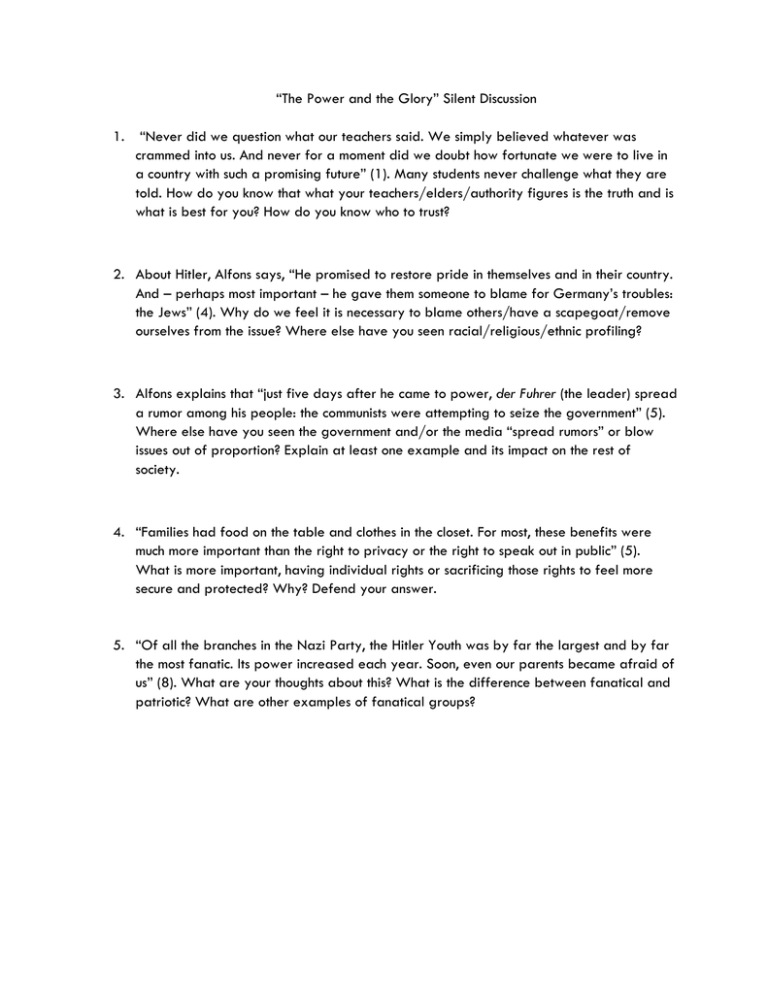
“The Power and the Glory” Silent Discussion 1. “Never did we question what our teachers said. We simply believed whatever was crammed into us. And never for a moment did we doubt how fortunate we were to live in a country with such a promising future” (1). Many students never challenge what they are told. How do you know that what your teachers/elders/authority figures is the truth and is what is best for you? How do you know who to trust? 2. About Hitler, Alfons says, “He promised to restore pride in themselves and in their country. And – perhaps most important – he gave them someone to blame for Germany’s troubles: the Jews” (4). Why do we feel it is necessary to blame others/have a scapegoat/remove ourselves from the issue? Where else have you seen racial/religious/ethnic profiling? 3. Alfons explains that “just five days after he came to power, der Fuhrer (the leader) spread a rumor among his people: the communists were attempting to seize the government” (5). Where else have you seen the government and/or the media “spread rumors” or blow issues out of proportion? Explain at least one example and its impact on the rest of society. 4. “Families had food on the table and clothes in the closet. For most, these benefits were much more important than the right to privacy or the right to speak out in public” (5). What is more important, having individual rights or sacrificing those rights to feel more secure and protected? Why? Defend your answer. 5. “Of all the branches in the Nazi Party, the Hitler Youth was by far the largest and by far the most fanatic. Its power increased each year. Soon, even our parents became afraid of us” (8). What are your thoughts about this? What is the difference between fanatical and patriotic? What are other examples of fanatical groups?

